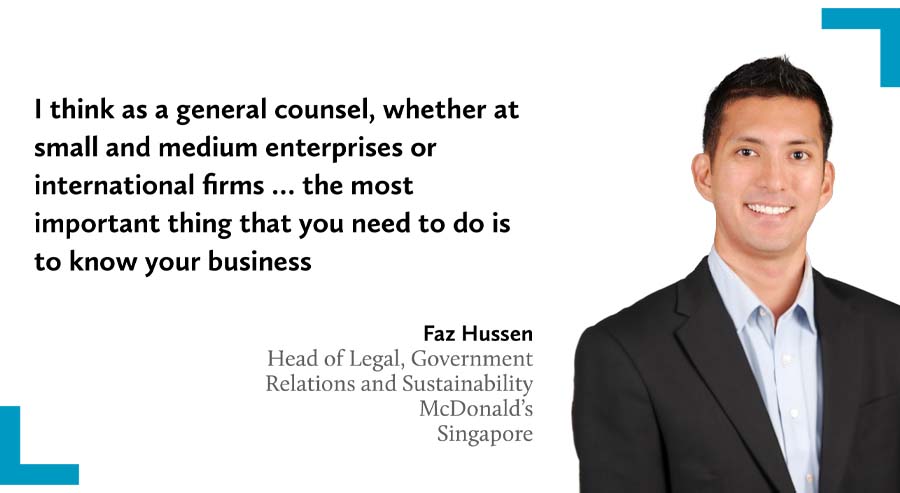As businesses expand across borders, general counsel share the journey and confront myriad legal tests. Those with experience say the power they bring to their companies is enhanced by interchanges of knowledge with peers. Putro Harnowo reports
The culture that successful general counsel bring to their companies can drive businesses far beyond the legal boundaries of expanded operations. Their knowledge and attitude is a battery of corporate power.
During the Singapore Corporate Counsel Association (SCCA) APAC Legal Congress held from 3-4 May 2023, Asia Business Law Journal talked to many general counsel to get their insights on issues from navigating businesses going global to managing legal teams and assisting with foreign investment.
Having networks is crucial and, for general counsel, engaging with alternate peer groups can substantially benefit them with information about what other experts in different industries are up to. They can uncover a wealth of information, insights and knowledge that they might not attain from within the circles of their fellow in-house lawyers. This broadening of perspectives in turn helps create a more robust and nuanced understanding of their own legal landscape.
“I think as a general counsel, whether at small and medium enterprises or international firms … the most important thing that you need to do is to know your business. That’s the number one thing,” says Faz Hussen, head of legal, government relations and sustainability at McDonald’s Singapore.
Hussen says an effective general counsel should take the time to understand what makes the business work – what drives it. Otherwise, legal counsel are just overseeing the usual legal matters.
“I would even say a general counsel is a business partner,” he says. “As an in-house lawyer, if you have a really good general counsel or head of legal, you shouldn’t be looking at them as a lawyer who knows the business. You should see a businessman with a law degree or law knowledge.”
Hussen says that a good legal counsel needs to be aware of upcoming trends. For this reason, building a network is crucial, as other companies may identify threat trends before yours does so.
“Have the questions and be curious about things,” he says. “I also tend to find that it’s really not just about networking; it’s about having fun with people that you enjoy talking to.”
Navigating progress
Business expansion is complex and requires strategic planning. Legal counsel is responsible for ensuring compliance with laws and regulations, navigating legal systems and cultural differences, and dealing with legal challenges that arise.
In the diverse landscape of the Asia-Pacific, different jurisdictions have different ways of doing business, notes SCCA co-president Daniel Choo, general counsel (APAC) at American-based high-performance scientific instruments and medical devices manufacturer Bruker, based in Singapore.
“There’s no one-size-fits-all solution to this, but I think the cultural part plays a huge aspect,” he says. “For instance, there may be similar rules [in many places], but the way of handling a specific matter would be somewhat different, culturally.”
In-house counsel are an embedded part of their organisations and must work with stakeholders across the business. Choo says legal counsel should understand that stakeholders will have different backgrounds to their own, and to each other.
“Having cultural awareness can make problem-solving easier in many cases”, says Choo.
SCCA co-president Renita Sophia Crasta, who is general counsel at TGR Real Estate, says there is much to be gained from Singapore’s strategic position in the region as a microcosm reflecting the interplay of a variety of cultures in Asia.
“General counsel are well-placed to observe the complexity of different cultures as they intersect and play out in everyday business and law,” says Crasta.
“For example, I oversee the APAC business and, as we expand our business to different countries, it’s very important to have the right cross-cultural understanding; and in instances of doubt, to be able to have a network of fellow inhouse counsel to connect us to the right partners across the region so that we can navigate all that we need to do.”
The role of in-house counsel has come a long way, says Crasta, with legal counsel having to keep abreast of ever-changing regulations and geopolitical events. While in-house counsel still need to have a business understanding, law firms with in-depth knowledge of different countries are often relied on to assist.
You must be a
subscribersubscribersubscribersubscriber
to read this content, please
subscribesubscribesubscribesubscribe
today.
For group subscribers, please click here to access.
Interested in group subscription? Please contact us.



























